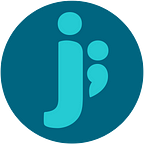When Kizija Makame, a 25-year-old mother from Chongo village in the central district of Zanzibar, started experiencing labor pains, she called Subira Haji, the community health worker who had visited Kizija’s home regularly.
Subira hastened to Chongo, arriving 30 minutes later, by which time Kizija needed advanced care at a health facility. Subira quickly called for transport and escorted Kizija to Mnazi Mmoja Hospital—20 kilometers away—where Kizija gave birth to a healthy baby boy, Abraham.
She saved my life. I delivered safely and my son is growing healthier. —Kizija Makame
Subira is one of the hundreds of community health workers in Zanzibar—and, truly, one of the millions across the world—who work tirelessly to bring the highest quality care possible to women like Kizija.
These community health workers often walk enormous distances by foot, from house to house, village to village, town to town, bringing care to some of the most isolated communities in the world.
From the highest mountain villages in Nepal, to the blistering Red Sea coastline of Eritrea, to Subira’s home among the islands of Zanzibar, community health workers are a first line of defense when it comes to health for women and their families. In these remote, sometimes extreme environments, effective transportation is as critical a component of success as are proper medicines and care.
This February, Subira was among 123 community health workers in Zanzibar who received bicycles from the U. S. Agency for International Development’s (USAID’s) Mothers and Infants Safe, Healthy and Alive (MAISHA) program—which is led by Jhpiego—to help them reach families like Kizija’s easily. The bicycles enable safe, inexpensive and far-reaching transportation, allowing community health workers to spend most of their time providing care and education.
With support from the President’s Emergency Plan for AIDS Relief (PEPFAR) through USAID, the Jhpiego-led MAISHA program has been working with Tanzania’s Ministry of Health and Social Welfare since 2008 to improve maternal, newborn and child health. In the first week of March, the program donated 528 more bicycles to community health workers from 132 villages across Zanzibar.
These community health workers are not only providing care in the community through home visits and linking more clients to health care through referral, they too are linked to health facilities, creating that important continuum of care. The services they provide are also integrated—maternal, newborn, child health; HIV; family planning; nutrition. Each community health worker is like a small community health post. —Maryjane Lacoste, Jhpiego Tanzania Country Director
Community health workers like Subira have far-reaching and substantial impact on maternal and newborn care. In the past year alone, community health workers on just two of Zanzibar’s main islands reached over 11,000 pregnant women and 17,000 newborn and infant children. They also performed over 11,000 postpartum visits.
While Subira can now ride around Zanzibar, shaving enormous lengths of time off her travels, health workers in many countries are still walking, step by step, mile by mile, to get to their patients.
Community health workers are living out the theme of this International Women’s Day: inspiring change by bringing quality health services to women and their families, from village to village around the world.
If more leaders work together to deploy more frontline health workers, more women and children will survive. — Melinda Gates
